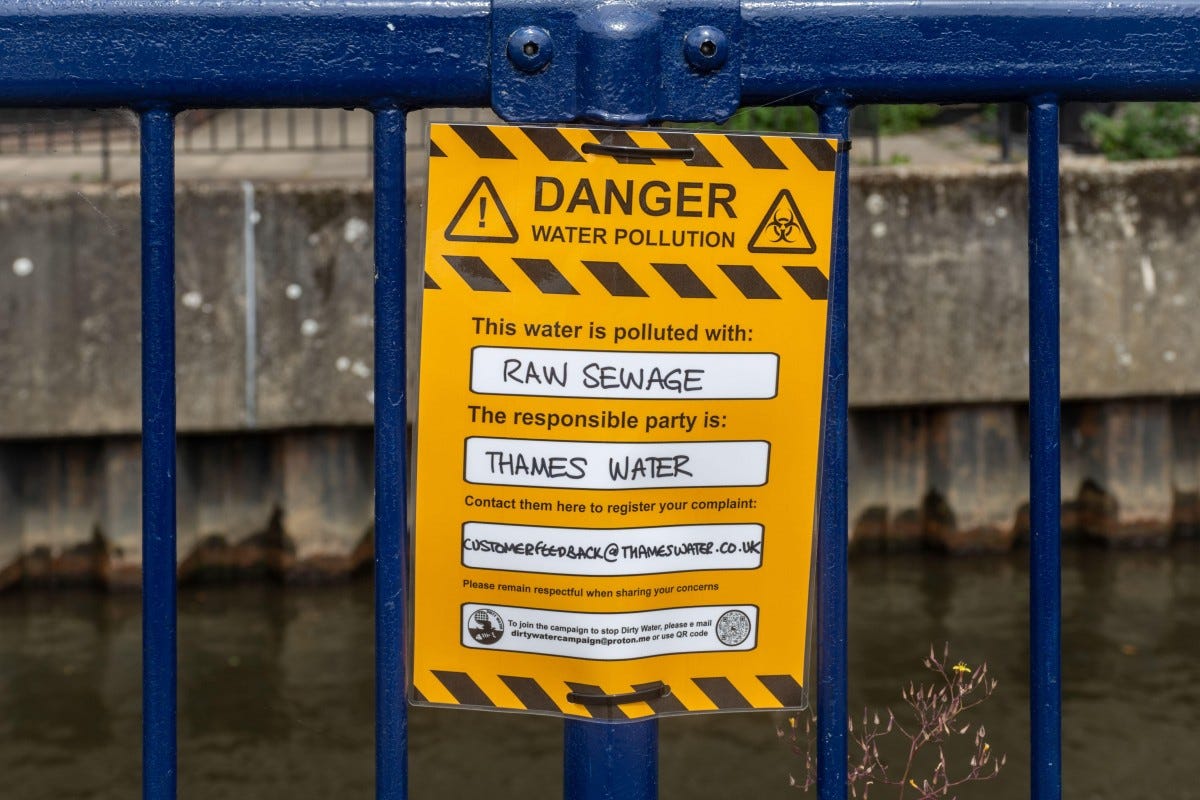Thames Water is financial poison
Charlie Maynard MP is trying to save the business from a watery grave.
Charlie Maynard is a somewhat unlikely figure when it comes to saving the customers of Thames Water from its avaricious creditors. The Liberal Democrat MP, whose constituents can see first hand how the company has turned Oxford’s pretty little River Windrush into an open sewer, is trying to save the business from a watery grave.
Lest this looks like exaggeration, consider what has been happening in the High Court this week. One set of creditors, with both eyes on the main chance, is arguing that the solution to the company’s debt tsunami is yet more debt, at an eye-watering price. Another set of creditors, who would be effectively wiped out by the proposals from the first lot, is arguing for a slightly cheaper scheme which would allow them to salvage something from the wreckage.
In the middle stands the board of Thames, plus others in the insanely complex capital structure of the business, all of them seemingly transfixed and claiming that Thames will run out of money on March 24. Oh, and the legal fees are running at £15m a month, a cost which will, inevitably, be ultimately borne by the captive customers of the company.
Then there is Mr Maynard and some pro bono lawyers, trying to prevent this grotesque City carve-up. Their proposal is to put the whole shooting match into a form of administration, to stop the vultures picking the bones clean with their fees and schemes. Thames is, after all, a valuable monopoly which has just been granted some stonking price rises over the next five years.
It’s the debt piled onto the business that has brought it to the brink of bankruptcy, and it is the fault of those banks and institutions advancing the money that allowed it in the first place. One indication of trouble ahead came as long as a decade ago, when the Thames balance sheet was already too weak to finance the super-sewer under the river.
Those banks who keep lending to an uncreditworthy business should now accept that their loans are not worth face value. Since they can never agree on anything except the need for more lawyers, the sensible solution is to put the business into special administration, as Mr Maynard is urging. The grounds for this are clear, since Thames is in gross breach of its operating licence.
Once in administration, the pressure for panic revenue-raising is released. The taps would not run dry. All those creditors would be invited to form an orderly queue while the debt-free business can be valued. In due course, there would be a return to the stock market. Thames would join the three remaining listed water companies, where public ownership has been a guarantee of responsible financial behaviour.
If only. A ruling in favour of the more rapacious of the two proposals is far more likely, giving them control of the business. They might even be emboldened to appeal against the price set by the regulator, because all those legal costs have quite upset their calculations of what they can spend on cleaning up Britain’s rivers and beaches. It’s the way we do it in this country.



